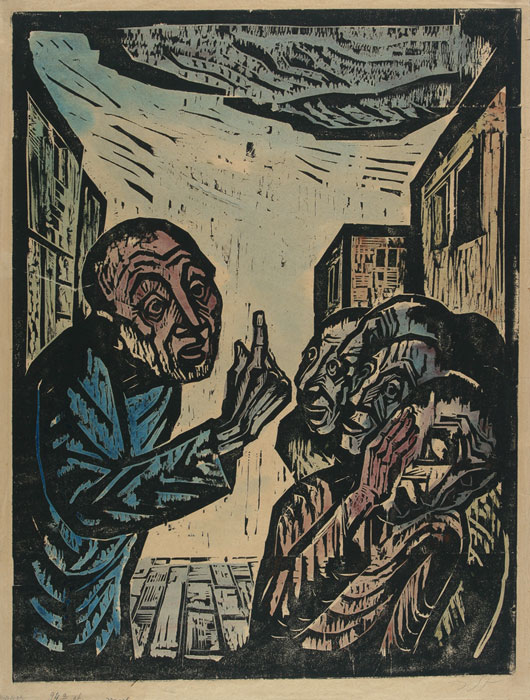Spiritual Sunday
Today’s Old Testament reading is the episode in the Book of Jonah after that conflicted man returns from the whale episode and this time does what God has commanded him to do, which is to prophesy to the people of Nineveh about their wickedness. In the Keith Schlegel poem I have chosen, one sees the tension between justice and mercy. One feels on much more solid ground when there are only crimes and punishments. Schlegel’s Jonah burns with conviction and righteous fury.
In the story, Nineveh does in fact repent after hearing Jonah’s words and God changes His/Her mind and spares the city. Jonah is so upset that he withdraws to a shady bower.
To prompt Jonah to understand the act of mercy, God has a worm kill the plant so that Jonah suffers from the heat. God’s point: although the people in Nineveh may have deserved to die, what has Jonah done to deserve the shade? Maybe deserving, as Clint Eastwood says in The Unforgiven, “has nothing to do with it.”
Put another way, while God guides our notions of what is right and wrong, God can’t be reduced to humans’ understanding of justice. The point is beautifully made by Tolkien in Lord of the Rings about Gollum: when Frodo says that Gollum deserves to die for his murder and other horrible deeds, Gandalf replies,
Deserves it! I daresay he does. Many that live deserve death. And some that die deserve life. Can you give it to them? Then do not be too eager to deal out death in judgment. For even the very wise cannot see all ends. I have not much hope that Gollum can be cured before he dies, but there is a chance of it.
Schlegel concludes his poem with this wonderful shift in perspective. After we think we’ve got everything figured out, our divine capacity for empathy enters the picture and changes all our calculations. It’s as though, right before Jonah’s eyes, God has grown into something far bigger than anything Jonah could have imagined.
The vision is made all the more powerful by the way that Schlegel tosses it off as a parenthetical statement. What appears to human eyes as an afterthought is the main point.
Jonah in Nineveh
By Keith Schlegel
For long days, hot among the ashes
In which they sat, I walked.
They burned, of course, and so did I.
Fair, if effects be chained.
Worth it, if justice is final,
Confirming consequence from cause.
Fair if the predictable,
Just is the certain,
When we know.
“The End is Near,” I cried,
Until the syllables grew hoarse,
My soles blistered,
And the straps of the sandwich boards
Cut my shoulders.
So what if they fasted, and wept, and prayed?
Too little, too late.
Should a three-day fast abolish
Decades of excess?
This is why I fled before:
That fate not be fickle and that I
Not burn like this.
I sought a bower
Bereft of promised ill,
Your promise.
So let me die, ashamed,
Made a liar by your lies.
You repent your revelation; let me
Repent my repentance, and theirs.
You changed your changeless mind!
(No, but as nature and this city grow, pity grew.
Limitless pity makes all large and new.)
Previous post on Jonah


